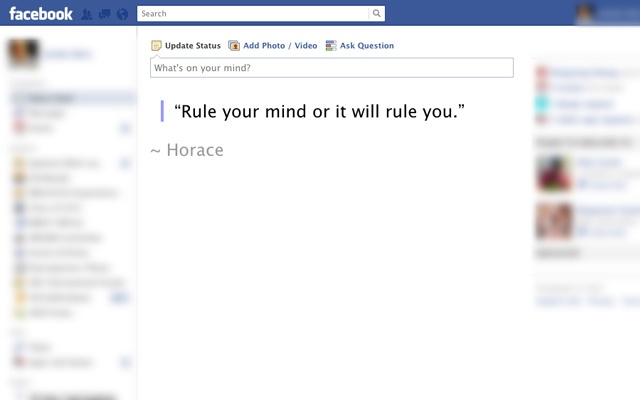In Derek Thompson’s article “The Facebook Effect on the News,” he takes a critical look at the articles that make the cut on most people’s news feed. He takes the stance that Facebook is not a valuable contributor of news circulation, but rather circulates fluff articles such as what Kim Kardashian did over the weekend.
His organization is weak at best. He starts his article mentioning his intentions for an article based on Facebook’s takeover of the number one spot of user homepages. That Facebook is user's main source of finding information as it is user-friendly and uses information from their likes, shares, and hides to build a feed specific for them. He supports this information with the comparison of referrals given to BuzzFeed, between Facebook and Google.
He then furthers his support by listing the top stories of the 2013 calendar year as built by BuzzFeed. He starts with a list of top 20 articles from Twitter. Although most of the headlines would draw attention from newsfeed scrollers, only about ten of them are actually considered news (and that is being rather generous). The top ten mainly is made up of actual news articles though.
He then builds the suspense by listing the top 20 stories from search engines. Nearly 70 percent of the top stories would be considered as actual news, even if the news you were looking for was concerning the firing of Paula Deen.
Upon entering the list of top stories from Facebook. It is evident that it is filled with nonsense, mainly things that you should see, use in your daily life, or stories to get an emotional response.
The primary purpose of Thompson’s article is to discredit Facebook’s contribution to society as nothing more that senseless dribble that shows up on personal newsfeeds because actual news is not a priority for the average American.
All of his sources cited are produced from buzzfeed. I find this rather limiting. Other sources could and should have been used. Maybe from a source that doesn’t have their hand in most of the said mindless dribble that is found on Facebook. Besides the outdatedness of his article, this is the second disturbing fallacy the writer presents. An article against a source should provide evidence from credible sources. I guess real news sources could care less about trivializing Facebook feeds.



You are the first one to point out that he references Buzzfeed and uncomfortably large number of times, as if that's a source that has any credibility at all (it's the ultimate click bait site). And overall, I think you're right. The article smacks of "yeah? so what?" His insights are pretty obvious and so easy to pass over. Then again, he may be writing to a different audience than us, given the generally older demographic of The Atlantic (a magazine whose print form has been around since the 1850s.)
ReplyDelete